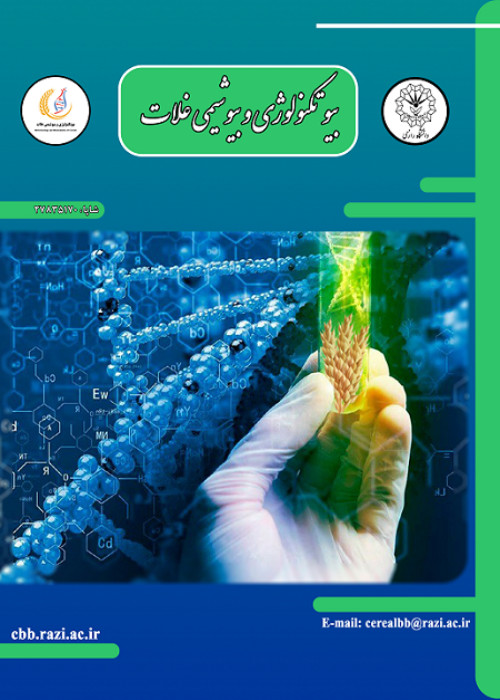Investigating the effect of salt stress on the expression level of SAPK2 gene from the protein kinase gene group in two tolerant and sensitive rice cultivars
Salinity is one of the unfavorable environmental factors for plants that affects their growth and fertility. Rice, as the second grain in the world after wheat, is a relatively sensitive plant to salt stress. Protein kinases are an important group of kinase enzymes that amino acids They phosphorylate a certain part in the protein structure. These enzymes play an important role in cell communication and inducing growth and proliferation messages. Therefore, the identification and evaluation of the function of protein kinase gene family genes in rice will help our understanding of the molecular mechanism of stress resistance.
Examining the expression pattern of SAPK2 gene in two rice varieties tolerant and sensitive to salinity in 1400 in the research greenhouse of the Faculty of Agriculture of Lorestan University was carried out as a factorial experiment in the form of a completely randomized design in three replications. Decisions per meter and time factor were investigated at three levels (6, 12 and 24 hours after applying stress). Sampling of plant leaves at the seedling stage (5-6 leaves) was done to check the expression of SAPK2 gene and internal control gene 18srRNA. took.
The results of the analysis of the gene expression pattern using Real Time PCR showed that there is no difference between the tolerant and sensitive cultivars at the salinity level of 3 ds/m and under no stress conditions, but at the levels of 6 and 9 ds/m with increasing time after applying the stress, the expression level The SAPK2 gene increases and the maximum expression of the gene was at the salinity level of 9 ds/m 24 hours after applying the stress. The level of gene expression at the salinity level of 9 in the tolerant variety was very significant compared to the sensitive variety. 12 and 24 hours after the application of stress, the gene expression in the tolerant variety was about 4 times more than the sensitive variety and 9 times more than the non-stressed condition. Also, the examination of the melting curve of SAPK2 gene in both tolerant and sensitive cultivars showed that the melting temperature is about 81 degrees Celsius.
With increasing salinity level, the expression level of SAPK1 gene increases in rice plants. Also, investigating the effect of time after applying stress on the level of SAPK1 gene expression showed that in the early hours after applying stress, the level of gene expression was insignificant, but with increasing time up to 24 hours, gene expression increased.
rice , Gene expression , salt , kinase
- حق عضویت دریافتی صرف حمایت از نشریات عضو و نگهداری، تکمیل و توسعه مگیران میشود.
- پرداخت حق اشتراک و دانلود مقالات اجازه بازنشر آن در سایر رسانههای چاپی و دیجیتال را به کاربر نمیدهد.



